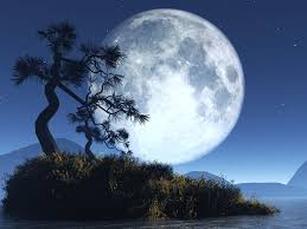
When it is dark, the body makes more melatonin. And it produces less when it is light. Being exposed to bright lights in the evening or too little light during the day can disrupt the body’s normal melatonin cycles. But the work in Current Biology, by Prof Christian Cajochen and colleagues from Basel University in Switzerland, suggests the Moon’s effects may be unrelated to its brightness. The volunteers were unaware of the purpose of the study and could not see the Moon from their beds in the researchers’ sleep lab. They each spent two separate nights at the lab under close observation. Findings revealed that around the full Moon, brain activity related to deep sleep dropped by nearly a third. Melatonin levels also dipped. The volunteers also took five minutes longer to fall asleep and slept for 20 minutes less when there was a full Moon.
Prof Cajochen said: “The lunar cycle seems to influence human sleep, even when one does not ‘see’ the Moon and is not aware of the actual moon phase.” Some people may be exquisitely sensitive to the Moon, say the researchers. Their study did not originally set out to investigate a lunar effect. The researchers had the idea of doing the lunar analysis years later, while chatting over a few drinks. They went back to their old data and factored in whether or not there had been a full Moon on the nights the volunteers had slept in their lab. UK sleep expert Dr Neil Stanley said, nonetheless, the small study appeared to have significant findings. “There is such a strong cultural story around the full Moon that it would not be surprising if it has an effect. It’s one of these folk things that you would suspect has a germ of truth. It’s up to science now to find out what’s the cause of why we might sleep differently when there’s a full Moon.” – BBC / http://theextinctionprotocol.wordpress.com/
 RSS Feed
RSS Feed